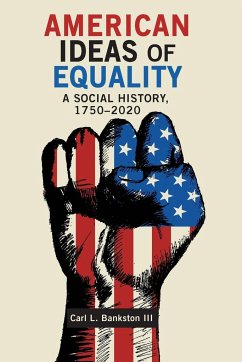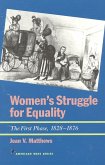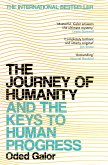Equality is a fundamental American value. The nation's Declaration of Independence declared equality as a self-evident foundation for political life and the pursuit of equality has continued to dominate policy debates in the twenty-first century. However, equality is a complex idea and it has had different meanings in different eras. Using a variety of data sources, this book describes how the views we hold regarding this fundamental national value developed as products of our cultural history from the origins of the American republic to 2020. It traces how cultural transmission, political and economic structures, and communication technology have shaped this core American value. The book begins with the early days of the American republic and follows ideological changes through the era of the self-made man, the rise of corporate society, the New Deal, the post-World War II era, and the era of Civil Rights. It ends with a detailed discussion of how this history has resulted in some of the most divisive political and social controversies of the twenty-first century. Most studies of equality have taken this as having a single, clear meaning. Most often, this has been either how much equality of opportunity exists now or has existed in the past, or how much equality of condition exists now or has existed in the past. They rarely consider that people can be equal or unequal in different ways, and that what we mean when we talk about equality or engage in debates about it has been shaped by historical experience. This book is a work of historical sociology that examines the forces that have shaped and re-shaped this fundamental cultural value. The book leads readers through an exploration of how different stages of American history have led to thinking about equality in terms of independence from hierarchy, the opportunity for self-creation, access to services and resources, widespread upward mobility, and equality across social categories. It takes a unique multidisciplinary approach, combining intellectual and cultural history with political, economic, and sociological analysis. No other book offers this kind of analysis of the both the historical origins and contemporary consequences of a cultural concept at the core of American national life. American Ideas of Equality will be a valuable resource for academic researchers, students, and general readers interested in American studies; cultural, economic, and political history; political science; and sociology.
Hinweis: Dieser Artikel kann nur an eine deutsche Lieferadresse ausgeliefert werden.
Hinweis: Dieser Artikel kann nur an eine deutsche Lieferadresse ausgeliefert werden.








